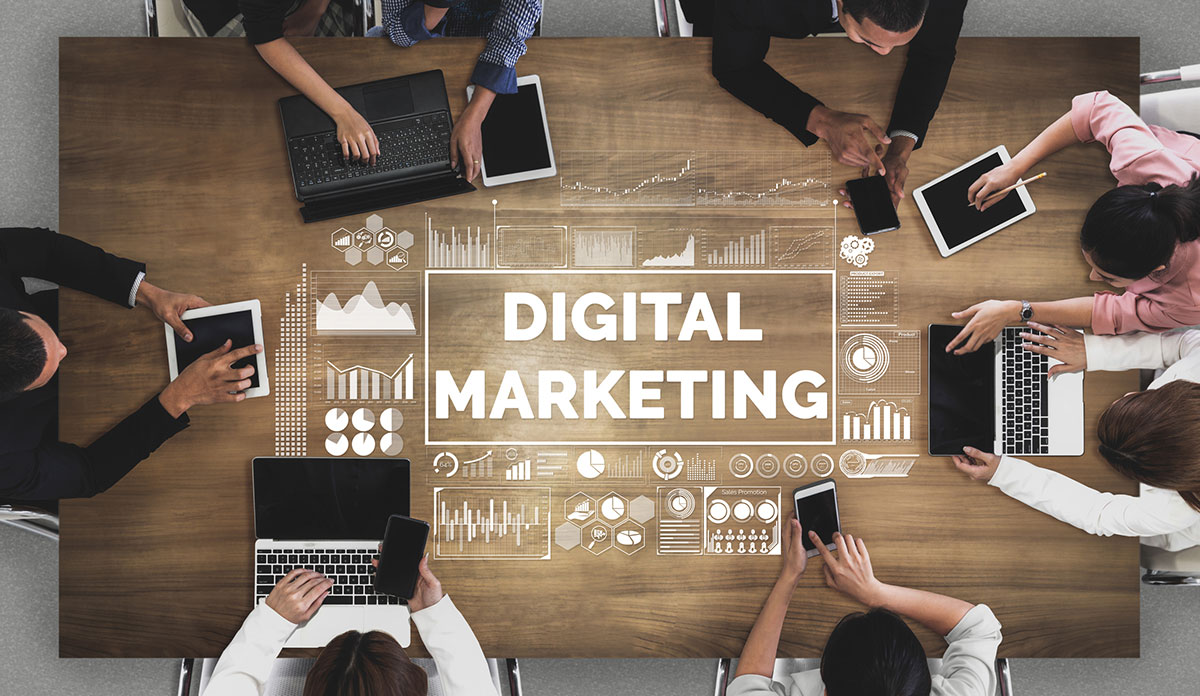When you run a small business, it’s easy to stick to the same marketing strategy for years and resist change. However, real growth requires the willingness to adapt to the ever-shifting landscape. When it comes to digital strategy, it’s not too late to find out what all the hype is about. According to a report from Smart Insights, “nearly half of companies don’t have a clearly-defined digital marketing strategy.” If you incorporate digital into your marketing approach now, you just might gain that critical edge over your competitors.
Think of digital marketing as a whole new approach to gaining customers, building connections, and increasing sales. Your strategy may include a new website, mobile apps, social media management, search engine optimization, paid advertising, email campaigns, automation, and even digital partnerships, depending on what your goals are. Below are five key components of a successful digital marketing strategy and why you need to incorporate them into your marketing approach today.
1. A Quality Website
Think of your website as a second storefront. You may have exceptional service and a great selection of products, but if your business looks cheap and outdated from the outside, there’s a good chance you’re going to miss out on some foot traffic and sales. Maintaining a quality website that accurately reflects your brand will give potential customers a feeling of trust and credibility they need to set foot in your store.
2. Email Marketing
Email is a direct path to reaching both past and future customers. When you are offering exclusive deals or you have added new additions to your product lineup, email allows you to share the big news directly with your audience. In fact, email’s importance in digital marketing strategy may be even greater now than ever before, as it delivers the best ROI for small businesses.
3. Social Media Marketing
It’s no secret that social media has changed marketing communication. Platforms such as Facebook and Instagram don’t just offer another avenue for you to promote your brand. They also give your audience the ability to communicate with you directly both publicly and privately. With the right approach, your social media strategy can help you foster important customer relationships and establish your brand as a reputable one.
4. Content Marketing
Consumers look to purchase products from knowledgeable sellers. Depending on your market, your customer may even be researching products online before they make a decision to buy. Content marketing uses blog posts, social media, and email to educate and inspire your audience. The right approach can position you as an expert in your market and help your audience navigate their purchasing journey.
5. Online Ratings and Reviews Management
It’s crucial to remember that the internet has made it possible for potential customers to read first-hand experiences from previous customers before making a decision. Your audience is looking at your reviews more often than you may think, and even a single one-star rating can turn them away. If you have a solid RRM strategy in place, you can use customer reviews to boost your business.
With so many components and techniques to consider, working a digital strategy into your marketing plan can seem overwhelming, but it doesn’t have to be. Pick one or two of the components above to focus on at first based on your business goals and continue to grow and adjust your strategy accordingly. Over time, a strong digital marketing strategy can bring new growth that you just can’t get from a non-digital approach, as well as position your business ahead of key competitors.


